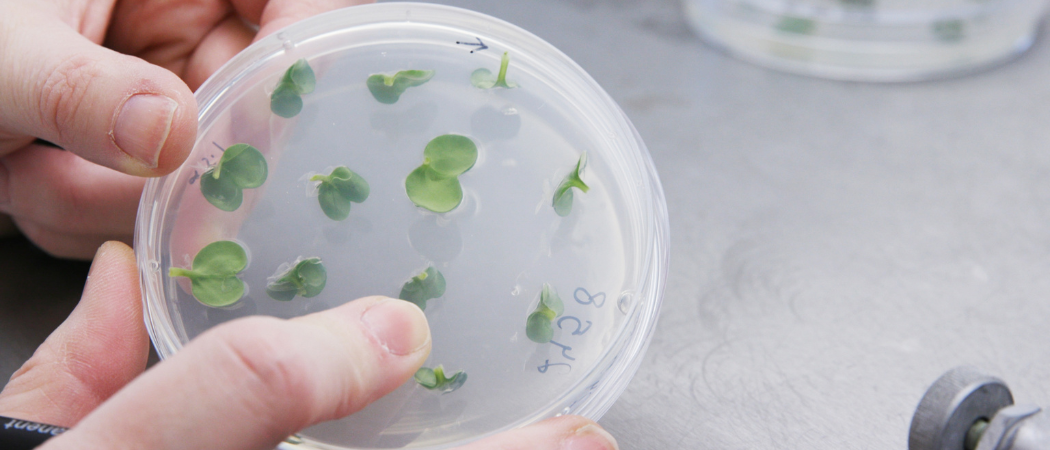The Commission is set to update legislation on genetic engineering of crops, with its proposal to be presented in July. There will be opposition from environmental groups that want the 2001 blanket ban to be retained

Brassica plants in tissue culture during the gene-editing process. Photo: John Innes Centre / Flickr
The European Commission is set to put forward its proposal for allowing genome editing techniques in agriculture, a step forward in a years-long dispute that has frustrated European researchers and the agriculture industry.
In a leaked version of the Commission’s proposal, published by the Genetic Literacy Project, the Commission reiterates its long-held stance that the current EU genetically modified organism (GMO) regulation is “not fit for purpose” because does not cater for newer, more precise gene editing techniques. The Commission is expected to formally present the proposal in early July.
Newer gene editing technologies enable targeted alterations of plant DNA to be made. That means that unlike first generation GMOs it is not necessary to introduce marker genes from bacteria to show the desired modification has occurred.
The technique is seen as a parallel – but faster – version of traditional plant breeding methods.
French microbiologist Emmanuelle Charpentier, co-inventor of the CRISPR technology that is now synonymous with gene editing, won the Nobel prize in 2020. But before that, in 2018 the European Court of Justice had put a stop to its uptake in agriculture in Europe, ruling CRISPR and similar technologies should be subject to the 2001 EU directive banning GMOs.
This has impacted researchers and stymied start-ups applying CRISPR and related techniques.
In March this year, the UK government passed the Genetic Technology (Precision Breeding) Act, allowing gene-edited food to be developed commercially in England, although the Scottish, Welsh and Northern Irish devolved governments have not followed suit.
The Commission’s proposal could set in motion a similar move for the EU. The Commission has for several years been overwhelmingly positive about allowing gene edited crops, with health and food safety commissioner Stella Kyriakides previously saying, “plants obtained with new genomic techniques could help build a more resilient and sustainable agri-food system.”
A 2021 report by the Commission also endorsed the technique, technologies such as CRISPR could help the EU make food production more sustainable, with new plants that are more resistant to diseases and harsher environmental conditions and which do not require the use of pesticides and fertilisers.
Opposition
The leaked proposal defines its preferences on how gene edited crops should be regulated, which includes an option for certain modified plants to be treated similarly to organic plants as long as they are placed on a transparency register.
There is strong opposition to the Commission’s proposal from environmental groups and the Greens/EFA group in the European Parliament. An open letter to Commission vice president Frans Timmermans in May this year calling for GMO legislation to be maintained, including for new techniques, was signed by over 300 organisations.
This week IFOAM Organics Europe, an umbrella organisation for organic farming, reiterated its position that “organic production should remain free from GMOs including from new genomic techniques”.
IFOAM Organics Europe’s president Jan Plagge said genetic engineering “ignores the complexity of interactions in a given agroecosystem.”
The Commission yesterday authorised imports of three genetically modified types of maize and four other GM crops for use in food and animal feed, although they cannot be cultivated in the EU and are subject to strict labelling and traceability requirements.




 A unique international forum for public research organisations and companies to connect their external engagement with strategic interests around their R&D system.
A unique international forum for public research organisations and companies to connect their external engagement with strategic interests around their R&D system.